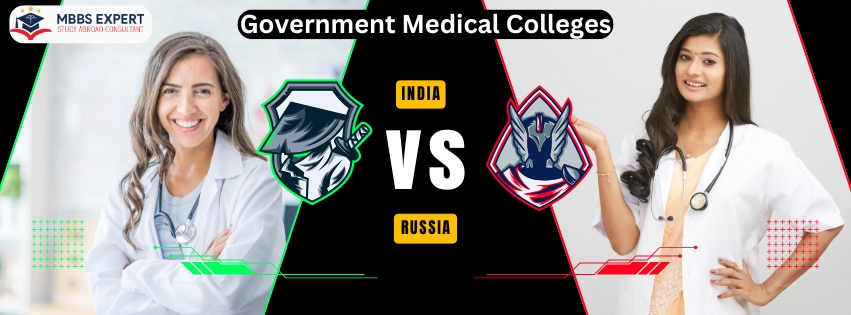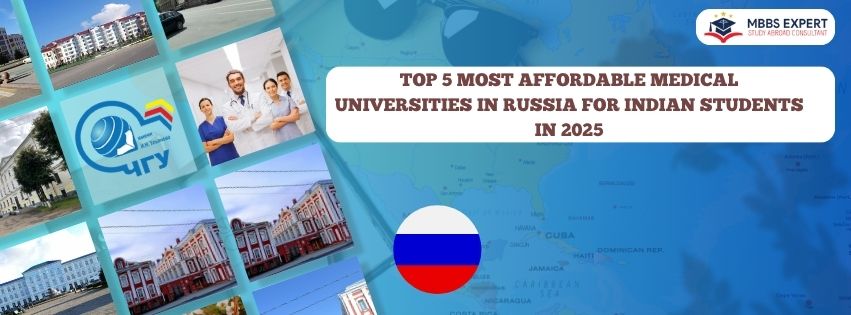Budget-Friendly Medical Education in Russia: Affordable Universities for Indian Students Introduction Pursuing a medical degree…

Government Medical Colleges in India vs. Russia
![]()
Government Medical Colleges in India vs. Russia: A Detailed Guide for Aspiring MBBS Students
Pursuing a career in medicine is a noble ambition, and choosing the right medical college plays a pivotal role in shaping one’s journey. Among the most popular destinations for MBBS education are government medical colleges in India and Russia. Each country has its unique strengths and challenges, and understanding these can help students make an informed decision. This comprehensive guide delves into various aspects of studying MBBS in India and Russia, including eligibility, cost, quality of education, clinical exposure, and career prospects.
Overview of MBBS Education
Government Medical Colleges in India
India is renowned for its robust medical education system, with government medical colleges offering high-quality training at subsidized costs. Prestigious institutions like AIIMS, JIPMER, and Maulana Azad Medical College are coveted for their rigorous academic environment and exceptional faculty. However, with limited seats and intense competition, gaining admission can be challenging.
Government Medical Colleges in Russia
Russia has become a popular destination for Indian students due to its affordable fees, globally recognized degrees, and simplified admission process. Renowned institutions like Kazan Federal University, Moscow State Medical University, and Crimea State Medical University attract thousands of international students every year.
Comparison Between India and Russia
1. Admission Process
India:
- Admission to government medical colleges in India is conducted through the National Eligibility cum Entrance Test (NEET).
- With limited seats and high competition, students must secure top ranks to gain admission.
- The reservation system adds complexity to the process.
Russia:
- Admission to Russian medical colleges is straightforward, with no entrance exams.
- Students are required to have a minimum of 50% marks in Physics, Chemistry, and Biology in their 12th-grade exams (40% for reserved categories).
- NEET qualification is mandatory for Indian students to practice in India post-graduation.
2. Cost of Education
India:
- Government medical colleges in India offer highly subsidized tuition fees, typically ranging from ₹10,000 to ₹2,00,000 per year.
- Additional expenses include hostel fees, books, and miscellaneous costs, which are relatively affordable.
Russia:
- Russian medical colleges charge moderate tuition fees, ranging from ₹3,00,000 to ₹6,00,000 annually.
- Living expenses in Russia, including accommodation, food, and transportation, amount to approximately ₹15,000–₹20,000 per month, depending on the city.
3. Language of Instruction
India:
- Courses are taught in English, and regional languages may be used during clinical rotations.
Russia:
- MBBS programs are available in English, but students may need to learn Russian for clinical interactions with patients and locals.
- Russian language training is often included in the curriculum.
4. Quality of Education and Clinical Exposure
India:
- Indian government colleges provide extensive clinical exposure due to the high patient inflow in government hospitals.
- The curriculum emphasizes practical training, ensuring students gain hands-on experience with diverse medical cases.
Russia:
- Russian medical colleges focus on theoretical knowledge during the initial years, with clinical exposure increasing in later years.
- Modern infrastructure and advanced teaching methods are key features, though patient diversity may be limited compared to India.
5. Recognition and Accreditation
India:
- Degrees from Indian government medical colleges are globally recognized and highly regarded.
Russia:
- Russian MBBS degrees are recognized by the World Health Organization (WHO) and the National Medical Commission (NMC) of India.
- Graduates must clear the Foreign Medical Graduate Examination (FMGE) or NEXT (from 2024 onward) to practice in India.
6. Career Prospects
India:
- Indian graduates can directly practice in India after obtaining their MBBS degree and completing a compulsory internship.
- Postgraduate studies require clearing the NEET-PG exam, and opportunities for specialization are abundant.
Russia:
- Russian MBBS graduates must clear the FMGE/NEXT to practice in India.
- Many graduates pursue further studies or practice in other countries due to the global recognition of Russian degrees.
Advantages and Challenges
Studying in India
Advantages:
- High-quality education with extensive clinical exposure.
- Affordable tuition fees and living costs.
- Familiarity with language, culture, and healthcare systems.
Challenges:
- Intense competition for limited seats.
- Stressful entrance exams and high cut-off marks.
Studying in Russia
Advantages:
- No entrance exams for admission.
- Affordable tuition fees compared to private colleges in India.
- Globally recognized degrees and opportunities to practice worldwide.
Challenges:
- Language barrier during clinical rotations.
- Need to clear FMGE/NEXT for practicing in India.
- Limited clinical exposure compared to India.
Cost Breakdown: India vs. Russia
| Parameter | India | Russia |
|---|---|---|
| Tuition Fees (per year) | ₹10,000–₹2,00,000 | ₹3,00,000–₹6,00,000 |
| Hostel Fees (per year) | ₹10,000–₹50,000 | ₹1,00,000–₹1,50,000 |
| Living Expenses (monthly) | ₹5,000–₹10,000 | ₹15,000–₹20,000 |
| Total Cost (5 years) | ₹2,50,000–₹4,00,000 | ₹20,00,000–₹30,00,000 |
Student Testimonials
Indian MBBS Graduate: “Studying in a government medical college in India gave me unparalleled clinical exposure. The competition was tough, but the experience was worth it. The diverse patient cases prepared me well for my medical career.”
Russian MBBS Graduate: “Choosing Russia for my MBBS was a game-changer. The affordable fees and global recognition of the degree were key factors. Learning Russian was challenging but rewarding, as it helped me connect with patients during clinical practice.”
Making the Right Choice
Choosing between India and Russia depends on your academic performance, financial capacity, and career goals. Here are some scenarios to guide your decision:
- Opt for Indian colleges if you have an excellent NEET score, seek strong clinical exposure, and plan to practice in India.
- Consider Russian colleges if you are unable to secure a government seat in India but still want quality education at an affordable cost.
How MBBS Expert Consultancy Can Help
Navigating the admission process can be overwhelming, but MBBS Expert Consultancy is here to make it seamless. From selecting the right college to guiding you through documentation and visa procedures, we ensure a hassle-free experience.
Why Choose Us?
- Personalized counseling to match your preferences.
- Extensive network of reputed medical colleges in India and Russia.
- Assistance with application, documentation, and pre-departure orientation.
📞 Contact us today at 9899954113 to kickstart your MBBS journey. Let’s make your dream of becoming a doctor a reality!





